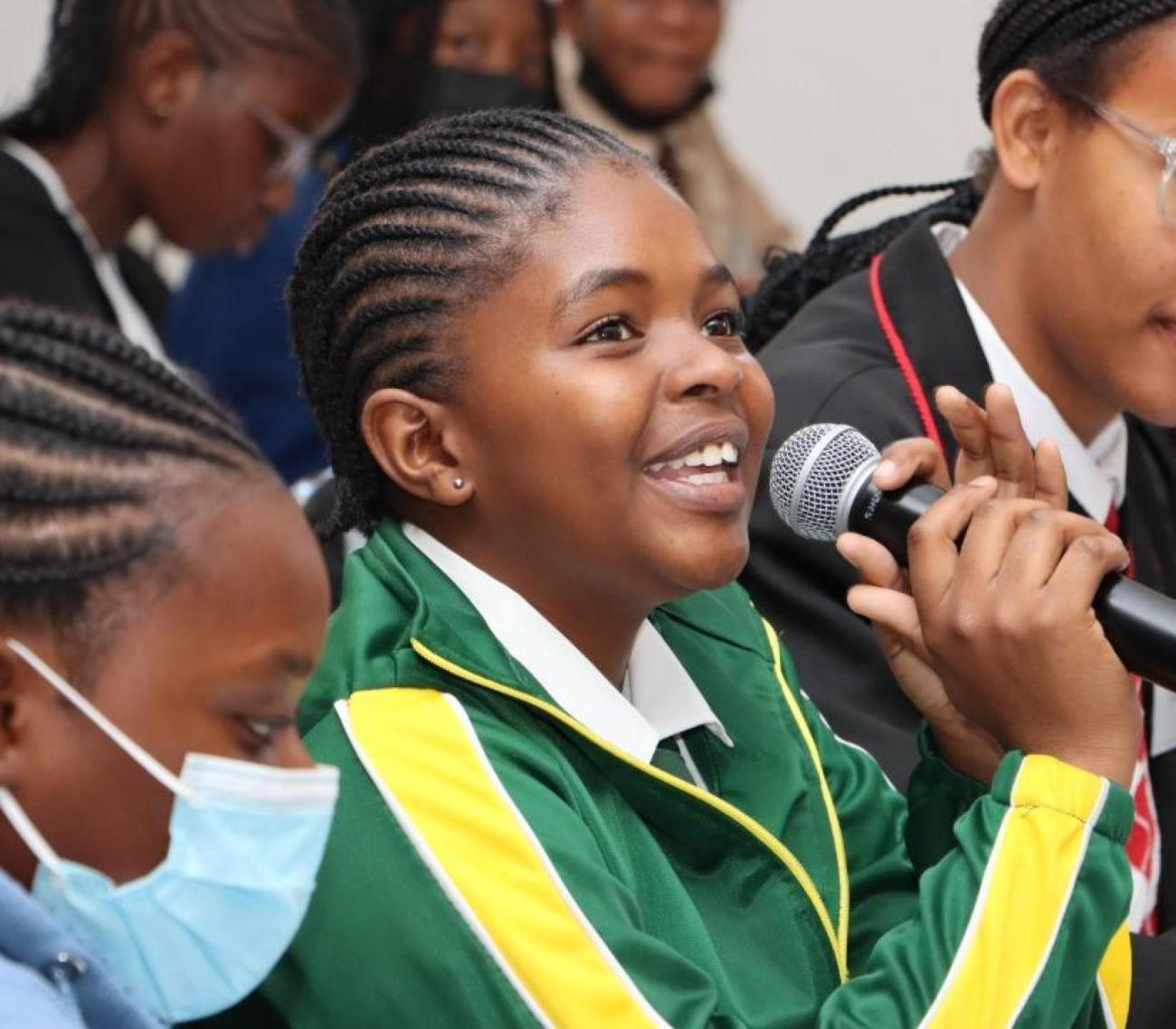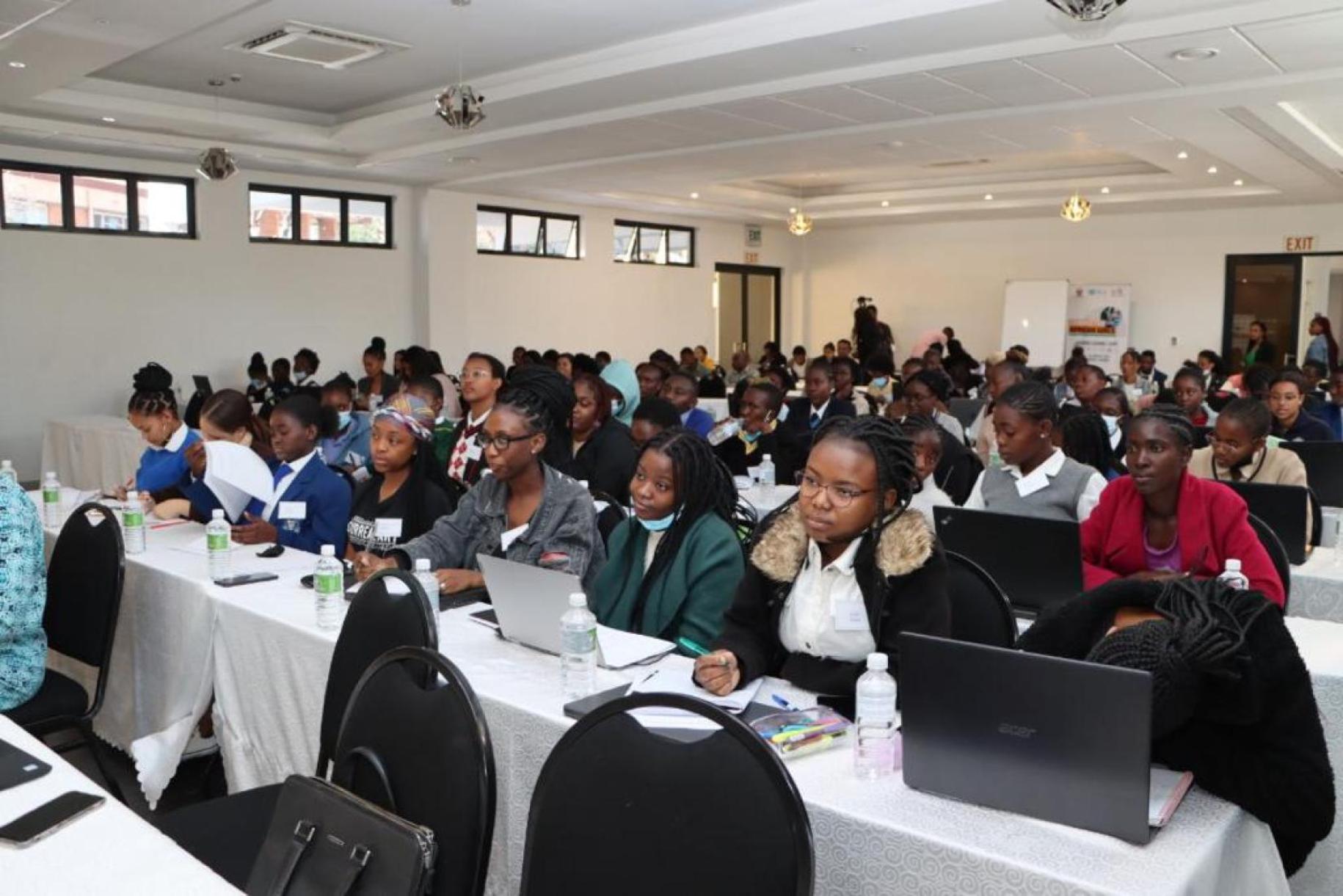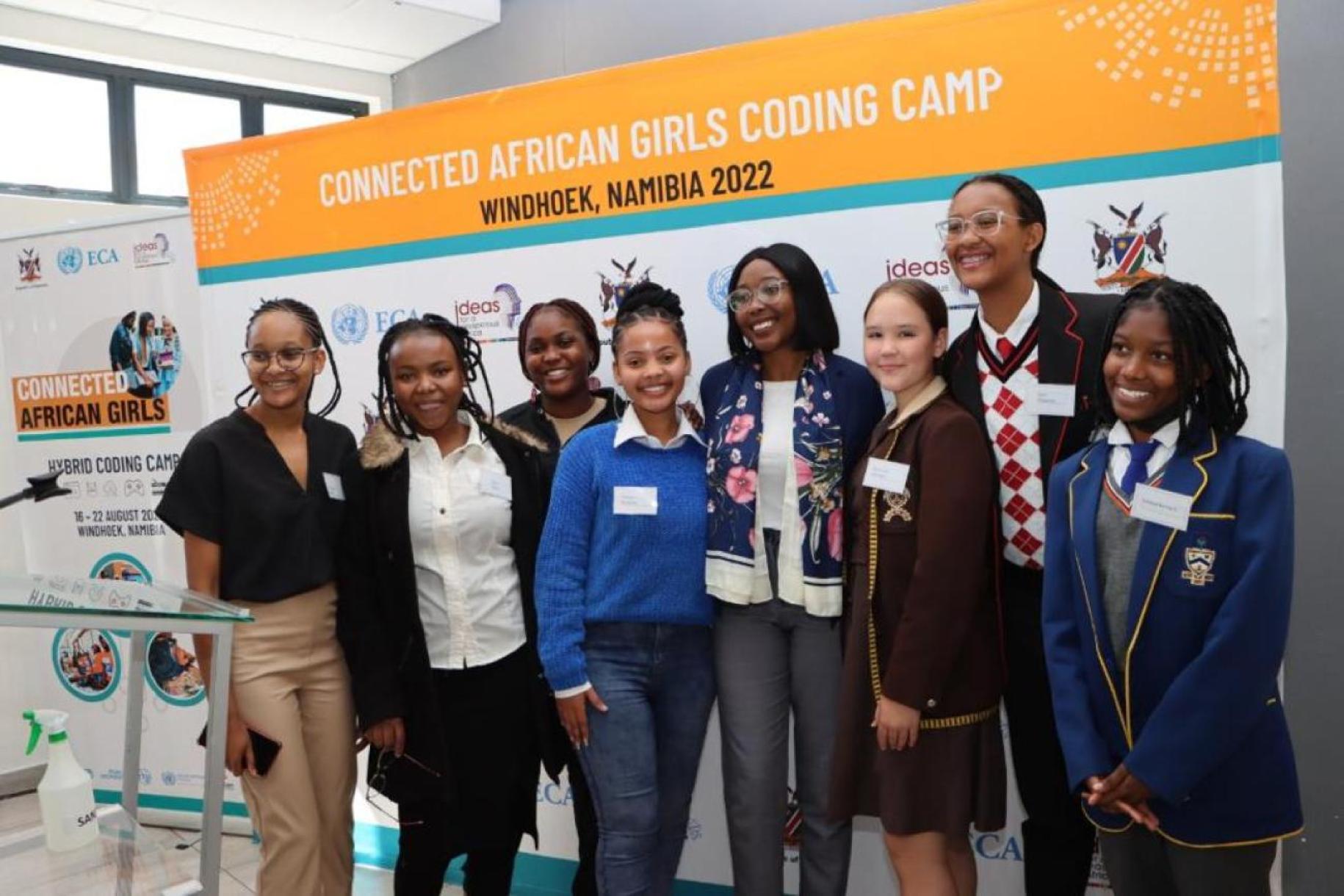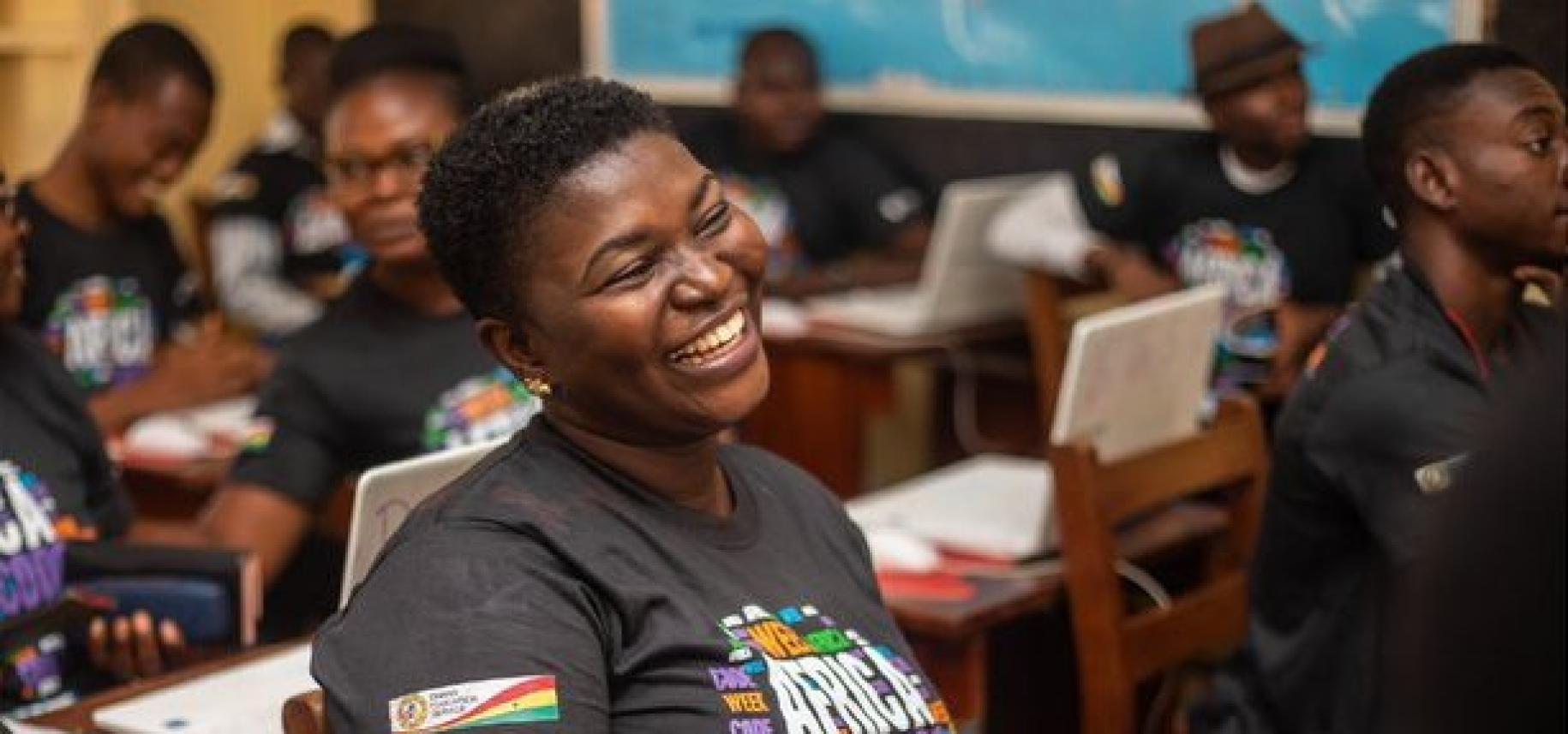The power of coding: UN teams partner up to close the digital literacy gap in Namibia and beyond

Celebrated annually on 8 September, International Literacy Day promotes the importance of literacy as a fundamental human right and aims to advance global efforts towards a more literate, equal, and inclusive society. In recent years, digital literacy has become an increasingly important part of the education and learning process; providing a generation of learners the writing, reading and technical skills to navigate our digital world.
Coding is one of the areas which is helping advance digital literacy and inclusion around the world. Below we explore the joint efforts of the UN team in Namibia to strengthen girls coding skills, boost their confidence and close the gender divide in the Information Communications Technology (ICT) industry.
Read, Write, Count, Code: Narrowing the gender digital divide in Africa
Wherever we go we are surrounded by products and systems that rely on coding – a digital instruction that enables software to function. Coding is now indispensable in almost every aspect of our lives and has become a prerequisite skill for many jobs. As a result, the demand for training in coding has grown significantly.
In Africa however, the number of women working in the fields of science, technology, engineering, and mathematics (STEM) is limited. The digital divide across the continent remains high; according to a 2021 report by the International Telecommunication Union (ITU), only 24 per cent of women are digitally active, compared to 35 per cent of men.

To help narrow this digital gap and empower more women and girls with the technical skills for careers in the field of STEM, the UN Economic Commission for Africa (UNECA), in collaboration with UN Namibia, UN Women, ITU, the Government of Namibia and other partners, launched the training course: ‘Connected African Girls Coding Camp’.
Now in its fifth edition, this year’s training camp, held in Windhoek from 16-24 August, brought together 100 young women and girls from Namibia and hundreds more virtually from across the African continent to strengthen their skills in ICT and coding.
The camp featured workshops on animation, web development & gaming, Internet of Things (IoT) & robotics, and 3D printing. Graphic design was included as a core course as well as artificial intelligence, design thinking, and computational thinking. The camp also helped develop knowledge on gender-based violence, the SDGs and the 2063 Agenda.
Boosting education, employment, and entrepreneurship though digital inclusion
Latoya Bernard is a 12th grade student from the northern Otjikoto region of Namibia who participated in this year’s Coding Camp. She explains how her interest in learning to code was first sparked.
"My younger brother introduced me to coding initially. In grade 10 I realised how important it is in relation to my subjects. I am very interested to learn how to use my subjects (in the workshop) in a way that will help me develop new ways of entrepreneurship and help me improve the living standards in rural areas."
On the final day of the camp an innovation fair was held in which the girls were able to showcase the projects they developed during the camp, including some of their solution-oriented ideas to tackle the most serious socio-economic challenges facing the continent today.

The United Nations Resident Coordinator in Namibia, Sen Pang, reflected on the success of the Coding Camp and emphasized the importance of further advancing digital inclusion and closing the gender gap in ICT across Africa:
“In our endeavors to 'leave no one behind', harnessing ICTs in education will go a long way in contributing to achieving Goal 17 of Agenda 2063’s aspiration 6, which seeks to eliminate all barriers to quality education, health and social services for women and girls on the African continent”.
Expanding digital inclusion and sustainable development across Africa

Aside from the Coding Camp, opportunities for young people to improve their digital literacy have expanded in Namibia and across the African continent in recent years, encouraging these young innovators to apply their new skills in ICT to help tackle some of the challenges facing their communities and make progress towards the 2030 Sustainable Development Agenda.
Africa Code Week, which was launched in 2015 by UNESCO and other international and regional partners, is the largest digital skills initiative on the continent. The project helps improve digital literacy across Africa by creating more free and accessible opportunities for young people to learn coding skills, providing more training for teachers on digital learning curricula and better equipping schools with resources and guidance to form coding clubs and nurture digital entrepreneurial skills.
As part of the initiative, several competitions known as the #AfricaCodeChallenge are currently taking place at country level across the continent, encouraging young people aged 8 to 16 to code a game under this year’s theme of "Protecting Life Together".
According to UNESCO Assistant Director-General for Communication and Information, Moez Chakchouk, the initiative shows how SDG17 ‘partnerships for the goals’ is being put into practice across the continent.
“Africa Code Week is a successful model in achieving SDG#17, highlighting how local and global public-private partnerships can enhance international support for capacity-building programs.”
By working together on joint projects like the Africa Code Week and the Connected African Girls Coding Camp, UN teams in Namibia and beyond are helping make coding and digital literacy accessible to more young people across the continent.
This piece was adapted by the UN Development Coordination Office (DCO) based on a story recently published on the UN in Namibia website, and an article posted to the UNESCO site.
To learn more about the UN's work in Namibia, please visit: Namibia.UN.org.
Want to know more about Africa Code Week? Please visit: https://africacodeweek.org/.













